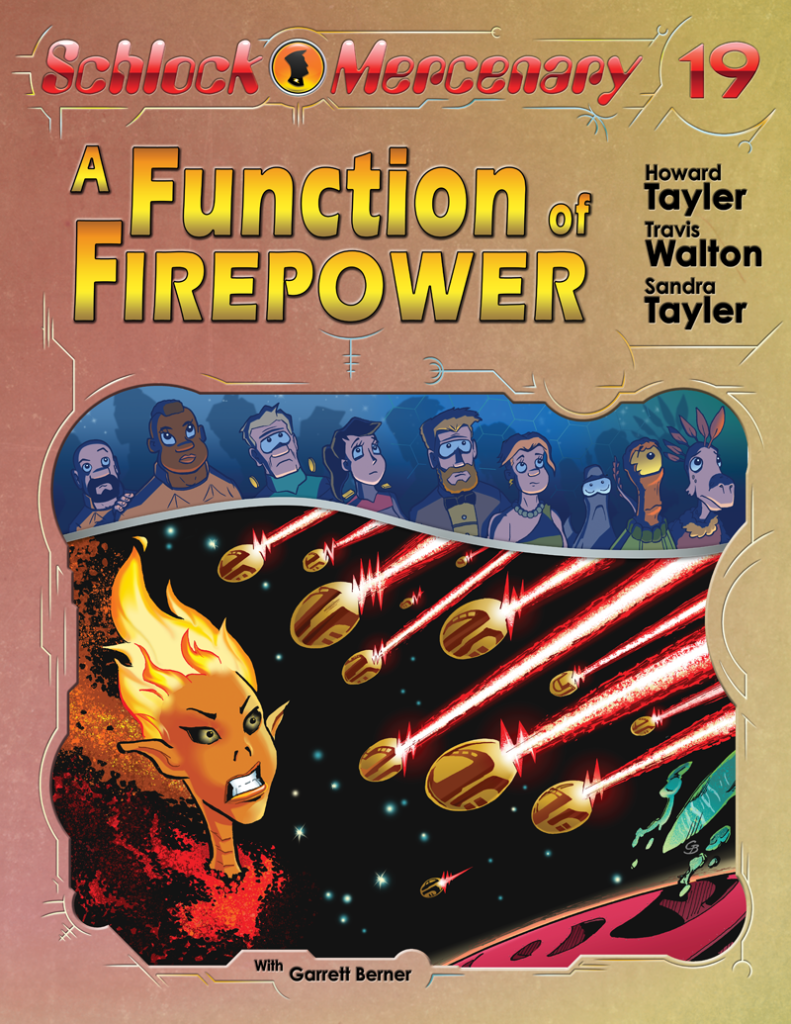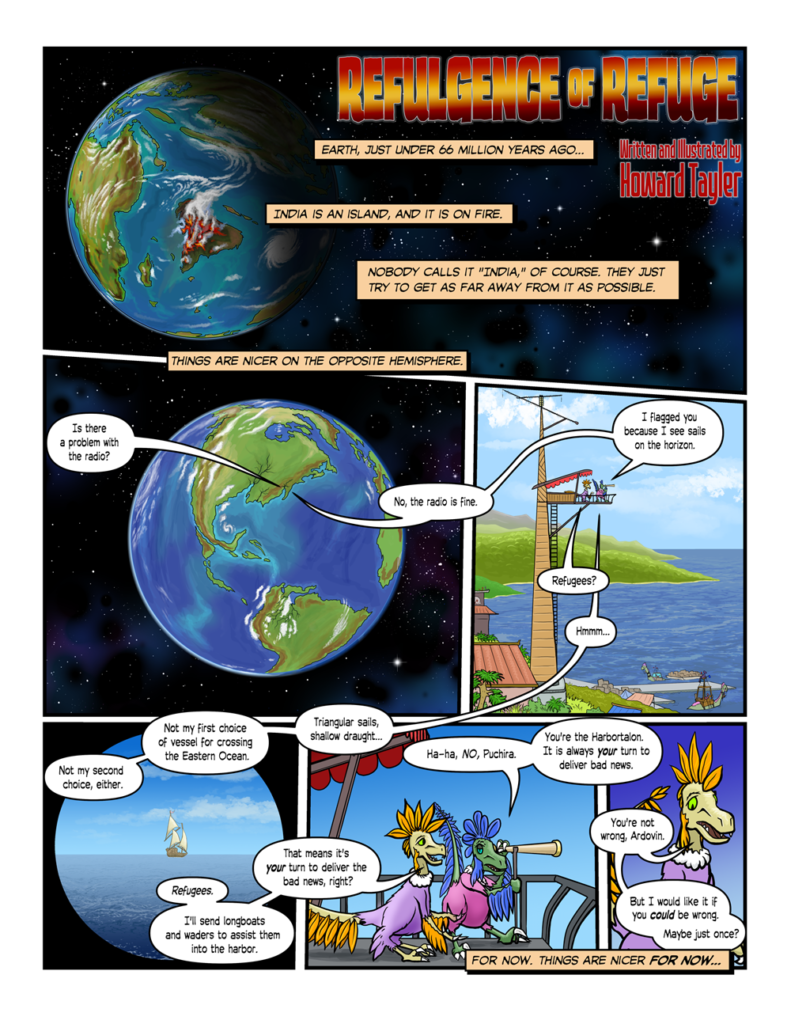GenCon Indy 2025
I’ll be at GenCon Indy from July 31st through August 3rd. You can find me with Jim Zub, Stacy King, and Sandra Tayler in Booth 1349.

—RSS Feed—
Ovalkwiki - The Official Schlock Mercenary Encyclopedia
Writing Excuses with Brandon Sanderson, Dan Wells, Mary Robinette Kowal, and Howard Tayler
One Cobble at a Time - the official site for Sandra Tayler's writings
I’ll be at GenCon Indy from July 31st through August 3rd. You can find me with Jim Zub, Stacy King, and Sandra Tayler in Booth 1349.
Somebody (probably Howard) forgot to post this news. You should have seen it three weeks ago. Whoops!
We’re crowdfunding A FUNCTION OF FIREPOWER, and the project closes in just ten days. The cover looks a lot like this:

The bonus story in A FUNCTION OF FIREPOWER is called “Refulgence of Refuge,” and it will fill in some of the blanks surrounding the end of Earth’s raptoroid civilization sixty-six-ish million years ago.
Would you like to see the first page? Of course you would!

Many of the stretch goals have already been unlocked, including some which provide freebies to everyone (not just backers!) Head on over to the Kickstarter page for A FUNCTION OF FIREPOWER, click into the Updates, and get the full-sized mobile and 4k versions of this wallpaper!

I apologize for not posting this sooner. It’s been a busy month, and Long COVID means I’ve dropped more than a few balls, but really, I could have left myself a reminder and gotten this done. Sorry about that!
Book 18, Mandatory Failure, has arrived from the printer. I’ve signed about 2500 copies, and we’ve begun queueing those up for sketches.

My stamina is not what it used to be. I’m as fast as ever, but I wear out pretty quickly. Slow and steady, then. If you’ve ordered a sketch edition, it’s in one of these boxes stacked against the wall, and it might be waiting there for a while…

I’m also doing sketch cards for some of you. I’ve finished about 200 of those already, and another 270 remain to be done. Those take longer, but I can work on them from my zero-gravity recliner, which lets me work for much longer stretches.
How long will you be waiting for your sketched book? I do not know! One thing that I learned in 2024 is that I need to recalibrate my estimates. I promise you this, though: I’ll work on these every day, and I’ll pace myself carefully.
| S | M | T | W | T | F | S |
|---|---|---|---|---|---|---|
| 30 | 31 | 1 | 2 | 3 | 4 | 5 |
| 6 | 7 | 8 | 9 | 10 | 11 | 12 |
| 13 | 14 | 15 | 16 | 17 | 18 | 19 |
| 20 | 21 | 22 | 23 | 24 | 25 | 26 |
| 27 | 28 | 29 | 30 | 1 | 2 | 3 |
| < Aug | ||||||
Supporters subscribed at $2.50 or more can access new archive browsing options! Subscribe via Patreon in your profile.
Change your archive browsing preferences in your profile.
Supporters subscribed at $2.50 or more can browse without ads and access new archive browsing options!
